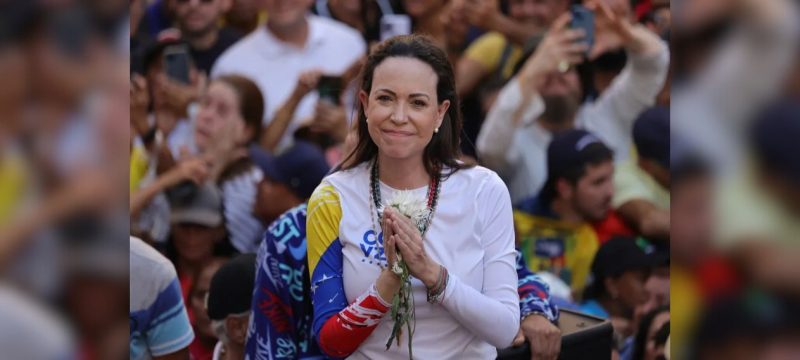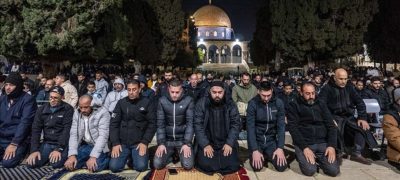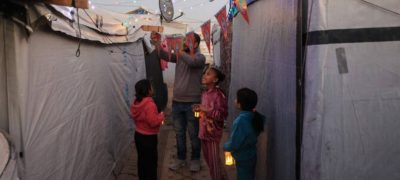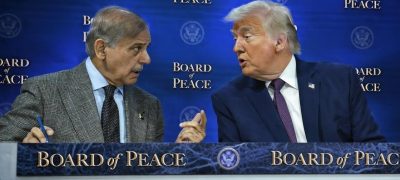Venezuelan opposition leader María Corina Machado, recently awarded the 2025 Nobel Peace Prize, has appealed for stronger U.S. intervention to counter what she describes as President Nicolás Maduro’s “war” on Venezuela.
In an interview with CNN’s Christiane Amanpour, Machado accused Maduro of leading a “criminal narco-terrorism structure” and urged U.S. President Donald Trump to “help us stop this war.” Her comments come amid growing tension between Washington and Caracas, following multiple U.S. military strikes on boats off Venezuela’s coast that the Trump administration labeled as “narco-trafficking vessels.”
Machado’s remarks have reignited debate over U.S. involvement in Venezuela and the legitimacy of its anti-narcotics operations. While the Trump administration has yet to provide public evidence that the targeted vessels were linked to drug cartels, officials have reportedly cited a classified legal opinion permitting lethal strikes against suspected traffickers.
“We need the help of the president of the United States to stop this war because it is about human lives,” Machado said.
She added that Maduro’s network thrives on drug, gold, arms, and human trafficking, claiming these illegal flows sustain his rule. “Regime change,” she argued, “will only come through enforcing the law and cutting those criminal routes.”
Machado Praises Trump and Defends U.S. Actions
Machado, whose Nobel recognition surprised many who expected Trump to win, publicly dedicated her award to the U.S. leader, calling it “absolutely fair.”
“I absolutely think he deserves a Nobel Peace Prize because of the incredible events that are taking place currently in the world,” she said, referring to Trump’s Middle East peace efforts.
Trump later confirmed he had spoken with Machado after her win, describing her as “very nice” and “courageous.” The Venezuelan leader thanked Trump on social media for his “decisive support” of Venezuela’s democratic cause.
Her endorsement follows Trump’s claim that he authorized CIA operations inside Venezuela to combat “illegal drug flows” and hinted that future U.S. operations could extend “by land.” Caracas, however, accuses Washington of attempting to overthrow Maduro’s government under the guise of anti-narcotics efforts.
A Nation in Turmoil
Machado’s appeal for U.S. support comes as Venezuela faces deep political, economic, and humanitarian crises. The Maduro government, which denies U.S. drug-trafficking accusations, continues to face international isolation.
Human Rights Watch reported that the regime has “killed, tortured, detained, and disappeared” political opponents. Following last year’s disputed election, Machado went into hiding after authorities voided her candidacy and intensified their crackdown on dissent. Despite this, she continued to mobilize opposition movements and train election observers through her network.
When asked whether she feared for her life after winning the Nobel Peace Prize, Machado replied, “Oh, yes, I do. They would dare to do anything to stay in power.”
The Nobel Committee praised Machado for “keeping the flame of democracy burning amid growing darkness,” describing her as one of Latin America’s most courageous figures.
Born in Caracas in 1967, Machado trained as an industrial engineer before entering politics. She co-founded Súmate, a volunteer organization advocating for transparent elections and civil rights. Her activism has long made her a central figure in Venezuela’s pro-democracy movement.
The Path Forward
Machado continues to call for international unity to end Maduro’s rule and restore democracy in Venezuela. Her Nobel Peace Prize has not only amplified her global platform but also heightened pressure on both the Maduro regime and world leaders to respond.
As Venezuela grapples with sanctions, economic collapse, and widespread repression, Machado remains defiant — symbolizing, in the words of the Nobel Committee, “civilian courage in the face of tyranny.”
In other news also read about Venezuela Norway Diplomacy Hits Turbulence After Nobel Peace Prize Award









